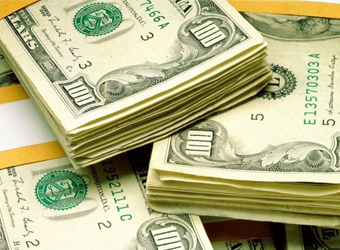U.S. dollar prices tumbled on Friday on a report that North Korea is preparing to test a long-range missile, overturning earlier gains after the governments jobs report for September showed an unexpected rise in wages.
RIA news agency cited a Russian lawmaker’s making comments on the missile test, which North Korea believes can reach the U.S. West Coast.
The market is getting more nervous about the prospect of some kind of a conflict, said Boris Schlossberg, managing director of FX strategy at BK Asset Management in New York. If they do something over the weekend, even if its a mild test, Im sure were going to open up a with little bit of risk aversion on Monday.
The dollar earlier rose to a more than two-month high against the yen and seven-week high against the euro as wage data from the September labor market report was seen as a sign of potentially improving inflation.
Average hourly earnings increased 12 cents, or 0.5 percent, in September after rising 0.2 percent in August. The gains came as nonfarm payrolls fell by 33,000 jobs last month after Hurricanes Harvey and Irma left displaced workers temporarily unemployed and delayed hiring.
I think most people realized going in that the headline numbers would be distorted because of the storms, but the surprise was the average hourly earnings, said Win Thin, head of emerging markets currency strategy at Brown Brothers Harriman in New York. This is the missing piece in the Feds puzzle.
The greenback jumped as high as 113.43 yen, the highest level since July 14, before dropping to 112.67. The euro fell to $1.1670, the lowest level since Aug. 17, before rising back to $1.1729.
Tepid inflation has been a bugbear for the Federal Reserve, which has puzzled over why price pressures remain low even as the job market improves.
The wage improvement boosted already high expectations that the U.S. central bank will raise rates at its December meeting, and that further hikes in 2018 are likely.
“The Fed signaled three rate hikes next year for the dot plots, and the market does not believe that,” said Thin. “I think if we start getting more numbers like that the market is going to have to believe it more and more.” Source: Reuters
Source: Reuters


